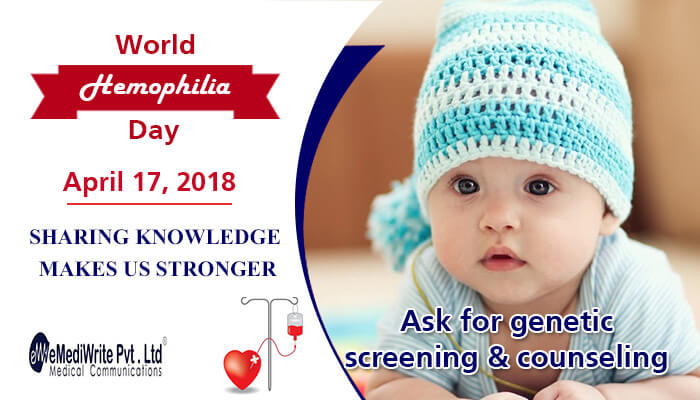What is Hemophilla
Hemophilia is not one disease but rather one of a group of inherited bleeding disorders that cause abnormal or exaggerated bleeding and poor blood clotting. About one in 10,000 people are born with this disease. It happens because of a defect in one of the clotting factor genes on the X chromosome.
Types
The three forms of hemophilia are hemophilia A, B, and C.
- Hemophilia A is the most common type of hemophilia, and it’s caused by a deficiency in clotting factor VIII. Eight out of 10 people with hemophilia have hemophilia A.
- Hemophilia B, which is also called Christmas disease, is caused by a deficiency of clotting factor IX.
- Hemophilia C is a mild form of the disease that’s caused by a deficiency of clotting factor XI. People with this rare type of hemophilia often don’t experience spontaneous bleeding. Hemorrhaging typically occurs after trauma or surgery.
Symptoms
- Blood in the urine or stool
- Large, unexplained bruises
- Excessive bleeding
- Bleeding gums
- Frequent nosebleeds
- Pain in the joints or tight joints
- A severe headache
- Vomiting repeatedly
- Neck pain
- Blurred or doubled vision
- Extreme sleepiness
Diagnosis
Blood tests can provide information about how long it takes for blood to clot, the levels of clotting factors, and which clotting factors, if any, are missing.
Treatment
Hemophilia A can be treated with a prescription hormone. This hormone is called desmopressin, which they can give as an injection into your vein. This medication works by stimulating the factors responsible for the process of blood clotting.
Hemophilia B can be treated by infusing your blood with donor clotting factors. Sometimes, the factors may be given in the synthetic form. These are called “recombinant clotting factors.”
Hemophilia C can be treated by using plasma infusion. The infusion works to stop profuse bleeding.
Living with hemophilia
This condition isn’t curable, but it can be treated to minimize symptoms and prevent future health complications.
These include:
- Regular exercise.
- Avoiding certain medications, such as aspirin, non-steroidal anti-inflammatory drugs, and heparin, which are blood thinners.
- Practicing good dental hygiene.
Every year, April 17 is celebrated as World Hemophilia Day. This year’s theme is “SHARING KNOWLEDGE MAKES US STRONGER”.





